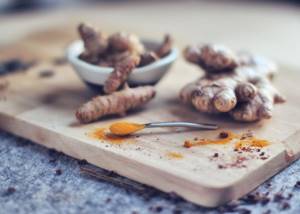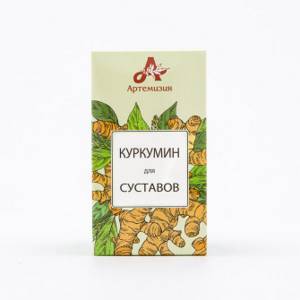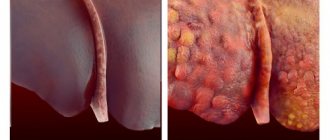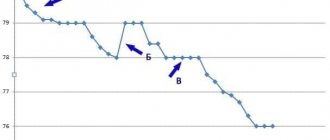Binge eating is an eating disorder in which a person eats large amounts of food and is unable to stop in time. This is a condition beyond the control of the will, which is fraught with excess weight gain, physical and psychological disorders.

Beneficial properties of curcumin

Antioxidant that fights free radicals
Unstable atoms with open valence are constantly looking for a “pair”. By aggressively penetrating the cell structure, they contribute to the degeneration of cells into malignant ones. By destroying free radicals, antioxidants prevent the occurrence of cancerous tumors: it is no coincidence that according to research results, turmeric is listed as one of the means that helps fight cancer.
In particular, it is used for melanoma and its treatment with chemotherapy, since turmeric helps relieve symptoms after chemotherapy.
Natural antibiotic
Works as an anti-inflammatory agent, the effectiveness of which is comparable to pharmaceutical drugs. In eastern countries, even in the middle of the last century, many refused antibiotics and, in the old fashioned way, treated serious diseases with turmeric, including tuberculosis and pneumonia.
Wound healing agent
This property of turmeric was known in ancient times, when eastern warriors and hunters kept a bag of turmeric powder with them, which they sprinkled on open wounds. To this day, turmeric is used to treat external non-healing ulcers that are difficult to treat with other means.
A remedy for reducing the level of “bad” cholesterol in the blood and normalizing sugar levels
Regular consumption of turmeric (about 1/2 tsp per day) reduces cholesterol levels in the blood. In the prevention of diabetes, turmeric is used as a means of reducing cravings for sweets and slightly lowering blood sugar levels.
Helps normalize hormonal levels
This property of turmeric was discovered not so long ago. Studies have shown that regular consumption of turmeric maintains high levels of male and female sex hormones and helps maintain reproductive health into old age.
For men, turmeric helps improve sperm quality and increase libido: it is not without reason that before the night of love in India it is customary to eat meat dishes with curry seasoning.
- Normalizes blood pressure,
prevents the deposition of cholesterol plaques on the walls of blood vessels, preventing atherosclerosis.
- Helps regulate metabolism
and the work of the gastrointestinal tract, having carminative and choleretic effects.
- Purifies the blood
, increases the level of iron in the blood, which is useful for anemia, and has noticeable antiallergic properties.
- Insect bite repellent
, including poisonous ones: in the east, turmeric is still used to treat scorpion stings.
- Used to cleanse the body of toxins
(according to Ayurveda, turmeric is used in combination with barberry and gentian) and for effective weight loss (including in combination with ginger).
The harm of overeating. 10 tips to avoid overeating

The essence of overeating is consuming too much food. Even simpler - it's gluttony. And there are a great many reasons for this. First, let's figure out why overeating is bad.
If you overeat:
- forget about a slim figure,
- “hello”, illness and poor health. How difficult is it not only to breathe, but also to move after overeating?! I don't want to do anything. And plus we get indigestion. There are diseases such as diabetes, hypothyroidism, problems with the intestines and pancreas, early menopause, etc.
- overeating is also unprofitable, because... We work on the toilet.
How does overeating negatively affect the functioning of all organs and systems?
All organs work in a state of overstrain and overload, which means they will wear out faster, leading directly to illness and old age.
It is important to understand the reasons for overeating (gluttony). There are several of them.
1. These are the social conditions and culture in which we live. All kinds of family traditions - holidays with abundant feasts. We set the tables in such a way as to please the guests both in terms of assortment and number of dishes. We eat and overeat in situations where we cannot refuse a mother or colleague who treats you to food, for fear of offending us by refusal.
To avoid such situations, you can simply explain to your loved ones why you are refusing the dishes offered. They love you and won’t wish you anything bad, they will understand. And with other people, it’s even easier. Just control and avoid situations so that communication is away from the kitchen or in a cafe where you can chat over a cup of coffee.
2. Any emotions and stress also lead to overeating. We eat everything: boredom, separation, joy, grief. If such situations occur, switch to other activities: music, sports, travel, sing and dance. Call a friend, write a letter, read a book or magazine, take a bath with oils. The main thing is not to isolate yourself and communicate (not at the table).
3. Sometimes we overeat when we find ourselves in certain situations. During the session we eat a lot of chocolate and coffee with buns (supposedly to activate brain activity). Or is it customary to eat something in cinema halls while watching films? And how can you pass by a bakery or pastry shop where delicious smells are coming from? You have to go in, buy and eat, even if you’re not hungry. Does this happen?
4. When we are tired, we want to eat to relieve this discomfort. So we eat to our heart’s content in the evenings after work. In this situation, you need to approach it wisely. What is more important – health? Then avoid long breaks in eating during the working day, so as not to overeat at dinner and control the amount of food eaten, understanding that food will not relieve fatigue. There are other options and methods for this.
Determine your reason for overeating, start monitoring your health and weight.
How to avoid overeating: 10 tips:
- keep hydrated. Be sure to drink clean water between meals. Sometimes the feeling of hunger is simply a lack of water in the body.
- You cannot eat if you are not hungry or “for company.”
- take your time while eating. Chewing food slowly will prevent you from overeating. If we manage to eat the first, second course, salad, dessert and compote in 20 minutes, this is a disaster for the body, this is overeating. Watch this interesting video about why you should eat thoroughly.
- eat small meals more often. The smaller the volume of food entering the stomach, the better the process of digestion, assimilation and cleansing occurs.
- don't forget about the children. It is in childhood that the right habits are laid. Don't force children to finish eating if they don't want to. Do not serve buns or cakes. Let the food be natural: nuts, fruits, vegetables. Instead of sweets, bananas, figs, dates, etc.
- If you can’t sleep because you feel hungry, drink a glass of kefir. It will relieve hunger and improve intestinal function.
- Never finish eating if you’re already full and it’s a shame to throw it away.
- The dishes you cook need few ingredients for better digestion.
- fewer dishes made from sugar and flour.
- It is also not recommended to eat at the computer or TV. In these situations, control over the amount of food is reduced.
Elena,
What is useful in a home medicine cabinet?

- Used to disinfect infected burns and cuts;
- prevention of the development of Alzheimer's disease, multiple sclerosis, various types of tumors;
- has an antidepressant effect, improves mood and performance;
- used in complex anti-inflammatory therapy of arthritis, including rheumatoid;
- acts on lipid metabolism, helping to stabilize weight.
Symptoms of overeating in adults and children
Food abuse can be either one-time or regular. If the dose is exceeded once, the clinical picture appears immediately.
Symptoms of overeating in adults and children are similar:
- Fullness in the stomach after a meal, pain, discomfort, nausea.
- Quick, discreet consumption of large portions of food.
- Deterioration in mood, sharp decrease in self-esteem, depression after another bout of overeating.
- Eating food without feeling hungry;
- Gain and constant fluctuations in body weight.
People who are prone to overeating prefer to eat alone because they feel depressed and ashamed of the portion size. The diagnosis is made when the patient notes a match for 3 or more of the provided points. After this, body weight gain is analyzed: initial weight before the stressful situation and indicators at the time of communication with a specialist. If the body mass index is exceeded, the diagnosis is confirmed.
To protect the liver and gastrointestinal tract
Turmeric normalizes the functioning of the digestive system, kidneys, liver and gall bladder. But it also has antiparasitic and antifungal functions, as a result of which humanity was freed from the presence of Giardia in the body - this is how curcumin entered the history of medicine as a remedy that improves intestinal microflora
Curcumin helps maintain normal liver function and detoxification, protecting the main “filter” from the effects of free radicals and toxins, and also prevents the formation of gallstones. Equally important, curcumin helps regenerate liver tissue by restoring hepatocytes.

The dietary supplement “Curcumin for the Liver” was created based on curcumin.
, which contains only natural ingredients - dandelion and burdock roots, milk thistle seed extract, turmeric root extract, artichoke extract, and black pepper extract - piperine, which enhances absorption and increases the bioavailability of all components.
What to do if you overate - first aid for yourself and others
Nutritionists explain in detail what to do when overeating:
- Physical activity: after eating a large portion of food, walking in the fresh air is recommended. This helps speed up metabolic processes, facilitates the process of digesting food, and reduces hypoxia.
- Applying heat to the area of the liver, gallbladder: a heating pad or a bottle of warm water helps to activate the digestion process.
- Limit food, alcohol, carbonated drinks. Re-eating is possible only if you feel very hungry, after digesting the previous portion and having a bowel movement.
What to do if you overeat: drug support:
- Sorbents: Activated or White carbon, Smectu, Enterosgel, Zosterin. The active substances of the drugs remove toxic substances and help fight the processes of rotting and fermentation in the stomach. It is necessary to maintain an interval of at least 1.5-2 hours between taking sorbents and other groups of drugs.
- Enzyme preparations to reduce the load on the pancreas: Pancreatin, Creon, or herbal medicines (extracts, papaya, pineapple).
- Drugs that normalize the flow of bile: Chophytol, Artichoke, Silymarin, Allohol.
It is recommended to use pharmacotherapy with prior agreement with a doctor. Enzyme medications and means for normalizing bile flow should always be on hand so that they can be used immediately after overeating.
Benefits of Curcumin for Liver and Curcumin for Joints
Consist only of natural ingredients.
Enhanced with extracts to optimize the liver: Dandelion and Burdock roots, Milk Thistle seed extract, Turmeric root extract - Curcumin, Artichoke extract, Black Pepper extract - Piperine.
The regenerating effect is enhanced by extracts of Milk Thistle, Artichoke, Dandelion and Burdock roots.
Curcumin for Joints is enhanced with anti-inflammatory extracts
- Sabelnik;
- white willow;
- ginger;
- licorice.
Bioavailability is greatly increased by black pepper extract
It has the ability to deliver substances quickly to their destination.
Do overeating and gluttony need to be treated, and how are these disorders treated?
Overeating may be due to psychosomatic or psychological reasons. Many people tend to “eat up” stress, fatigue, and irritability, after which they fall into even greater psychological dissatisfaction. A qualified psychologist will help you cope with the problem .
In other cases, only an experienced doctor can select a treatment regimen. Sometimes it is enough to adjust the diet and add a sufficient amount of polyunsaturated fatty acids and proteins. This is the basis of the diet, which ensures a long-term feeling of fullness. Simple carbohydrates, sugar, and dairy products from the store are completely removed from the diet.
It is also necessary to undergo an examination to identify a deficiency of chromium, zinc, copper, iron, and check the functioning of the thyroid gland. If deficiencies are detected, compensate for them under the supervision of a doctor.
If you have any questions about how to deal with compulsive overeating, it is recommended to contact nutritionists and psychotherapists . The earlier treatment begins, the more favorable the prognosis, and the lower the risk of developing the consequences of overeating: excess weight gain, hormonal, endocrine, and metabolic disorders.
Identify your triggers with a food and mood journal
One of the best ways to identify patterns of overeating is to keep a food and mood journal. Whenever you overeat or feel compelled to find your version of comfort food, take a moment to understand what triggered the craving. If you go back, you will usually find the upsetting event that caused the commotion.
Write it all down in your food and mood journal: what you ate (or wanted to eat), what happened to you, what upset you, how you felt before you ate, how you felt while you ate, and how you felt after. Over time you will see the picture emerge.
Why do we overeat?
The stomach is a treacherous organ, since its capacity varies within significant limits. An empty stomach can hold up to half a liter, and after eating it expands to 1 liter. For those who systematically overeat, the stomach volume reaches 4 liters.
The signal to the brain about satiety comes precisely from a full stomach, so in some cases a person loses normal guidelines regarding the amount of food eaten.
There is a classification of overeating, which distinguishes the following types:
For reasons:
- restrictive ─ after strict inferior diets, when the body “gets” what was missing, storing energy to account for future losses;
- compulsive or psychogenic ─ uncontrolled absorption after stress or in conditions of chronic psychotrauma;
- external ─ eating the entire amount of tempting food (cakes, fatty meats, etc.);
- nocturnal ─ a type of psychogenic.
Feels like:
- obvious ─ absorption of food to the point of heaviness in the stomach;
- hidden ─ the amount is small, but the calorie content is high: fatty dishes with sauce, butter, mayonnaise, confectionery, alcohol.
According to psychological attitudes:
- with a feeling of guilt ─ a person strives to get rid of excess weight through physical activity and “earns” psychological complexes;
- without guilt ─ typical for the second or third stages of obesity, when a person has come to terms with his weight.
For appetite control:
- controlled ─ some volitional effort allows you to stop;
- uncontrolled ─ food intake stops only under the influence of significant external factors, requires treatment.
In practice, these types of overeating overlap and almost never occur in isolation.










